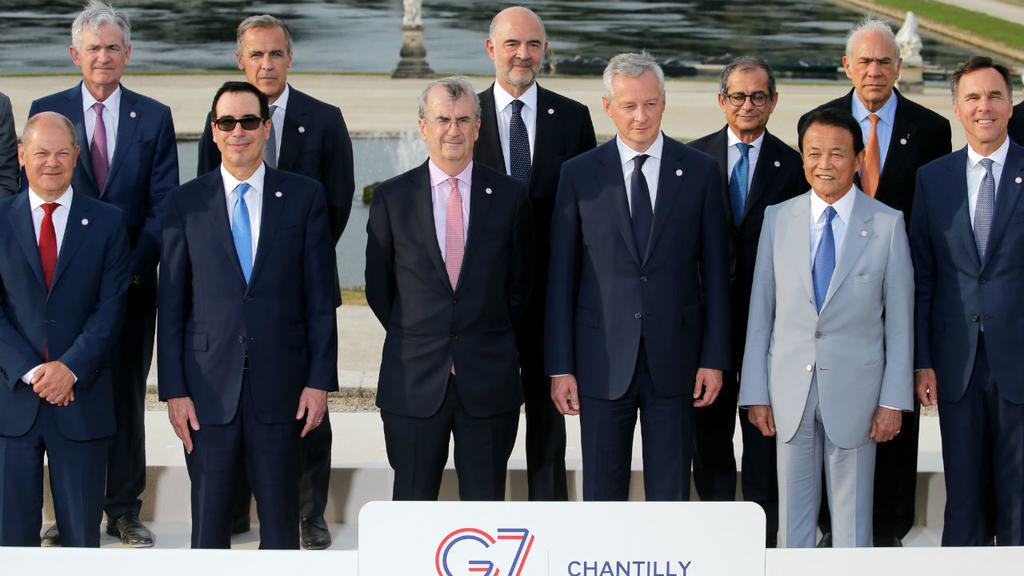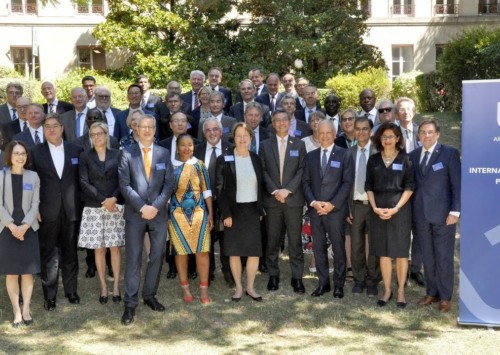Trade tiff over French tech tax
France urges G7 to find 'international solution'
A new tax by France on ‘new economy’ companies upsets the US and threatens the start of another trade war, after China.
The United States President Donald Trump never really got along with his French counterpart Emmanuel Macron and the unease between the two leaders is rather readily visible on Trump’s face or body language every time the two meet. Now, Macron has given another reason for Trump to not like him.
Last month, despite threats by the United States administration, the French Senate cleared a new tax on the sales within France generated by companies that are headquartered elsewhere. The tax of three percent on total sales will be imposed retrospectively from January 1 this year on companies with a minimum global turnover of EUR 750 million that generate at least EUR 25 million sales in France this year.
For now, the tax concerns a total of 28 companies, many of them tech giants from the United States, such as Alphabet, Facebook, Uber and Amazon, but there are also Chinese and some European companies, including a French one as well.
The US has threatened to launch an investigation into the measure saying that it unfairly targets US businesses and is protectionist, a charge vehemently denied by France which says that time has come for the international community to modify the tax regimes to take into account the evolution of the global economy and the emergence of technology companies that do not need a physical presence and yet conduct business all around the globe.
Indeed, France is not alone in this thinking. The European Union (EU) has long accused the new tech companies, most of them based in the Silicon Valley, of tax evasion across the EU, even though they raise a significant proportion of their global sales on the continent. Led by France and Germany, last year the EU had indeed begun pushing for new norms of EU-wide taxes to net these companies as well. However, the measure stalled as some of the EU members, themselves low-tax or no-tax havens, felt their own interests threatened by the move and opposed the tax.
Nevertheless, the French argument does carry weight. The technology companies have benefitted for long, one could argue, for too long and too much, riding on the back of nearly no taxes in several key markets. They have also by-passed key regulations that add to the costs of doing business, such as taxi licences that Uber or its drivers don’t need to buy. A study by the European Commission says that on an average the tech firms pay as little as eight percent of tax on their total sales within the EU, while the standard bricks and mortar companies pay nearly 23-25 pc.
This lopsided tax rate and playing with the regulations of the countries perhaps could have been justified about two decades ago when these tech firms were yet nascent. But today, they account for a sizeable chunk of the global economy, have turned their founders in multi-billionaires and their shareholders have also made a killing on their
investments.
The only ones that have not reaped any financial benefits from this wealth are perhaps the governments and more broadly the society. This may indeed be the time for a review of the global taxation system and the special treatment meted out to the techies.
In many ways, the French tax could be viewed as another attempt by the government in Paris to push for a global discussion on this key issue. Indeed, as the finance ministers of the G7 group of developed economies gathered in Chantilly, near Paris, last month for their annual meet, France, the host nation, very aptly kept this item right on top of the agenda.
France has said that it will withdraw its tax the moment an EU-wide measure takes place or another global tax that would be seen as fair both the technology and innovation as well as the ‘old economy’ or traditional businesses.
Getting into a very high profile and public spat over taxing hi-tech at a time when France is trying to position itself as the innovation capital of EU, if not the world, is a very risky strategy. Yet, the French government believes that the two are not contradictory. It says it has and will continue to make the business environment more innovation
and technology friendly and provide all sorts of incentives and assistance to start-ups and entrepreneurs, but also points at the duty of the rather ‘mature’ technology firms such as Alphabet or Facebook to turn in a part of their profits to the country where they make money.
The G7 meeting is extremely unlikely to be the place where the dispute with the US could be resolved. But France wants to put the issue right in the eyes of global community in a manner that few can turn a blind eye to an issue which indeed is a burning question today, not just here in Paris, but also in the United States where the tech firms could soon become as easy targets as the banks had been in the last decade when they were seen as creaming off the society without any payback. Though Trump may launch counter measures to attack French products, the tech companies are unlikely to be able to escape the tax net anymore.
It may be worthwhile for the tech giants themselves to mend their ways and begin paying at least nominal taxes in countries where they do sizeable business. This would definitely ease the pressure and could in a way head off other countries adopting French-style taxes, else they may find themselves at the receiving end of rather stiff one-sided measures not too far down the road.













